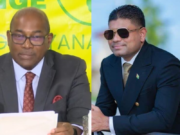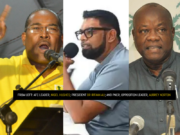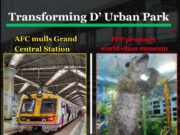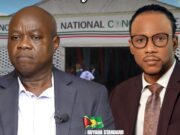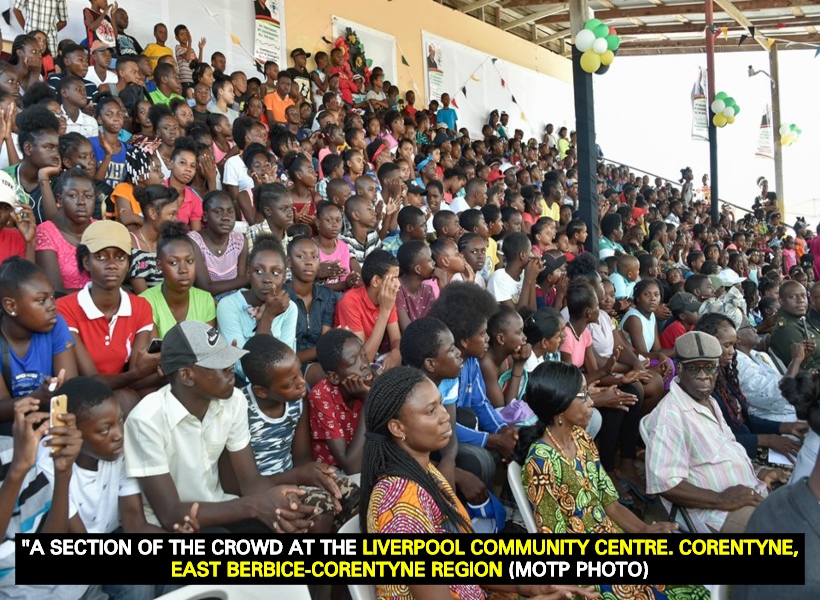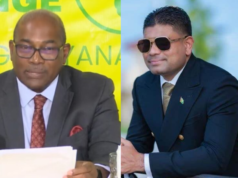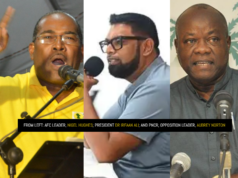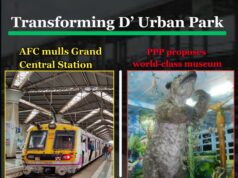The government’s distribution of school supplies to students returning to the new academic year is not a sideshow. It is, in fact, an investment in the future of our country, says President David Granger.
The Head of State made this comment yesterday in Berbice at a back-to-school drive held at the Liverpool Community Centre which saw the attendance of children from the communities of Lancaster, Liverpool, Manchester, Ulverston, Alness, Salton and Hogstye.
The children, according to the Ministry of the Presidency (MoTP), were presented with backpacks, bicycles, and other items which will enable them to return to school equipped with the necessary items conducive to learning.
“I am happy to be here. The new school year starts soon and it is a good time to distribute school supplies and bicycles. This is not a sideshow; it is central to the investments which are being made within the public education system. Education is the most powerful investment in our future,” President Granger said.
He told the hundreds of children of all ages assembled there that Guyana is a great country, the biggest, most beautiful and bountiful country in the English-speaking Caribbean.
“We have to protect and preserve this patrimony for future generations — our children and grandchildren. We have to sustainably develop our resources for the benefit of everyone. Our children have to inherit and further develop this rich legacy,” he said, noting that education is the means which will allow development to occur.
“It is the vehicle which will move us towards the ‘good life’. Education is an investment in our country’s development. Guyana’s economy is perched for rapid modernisation. Modern economies, however, do not run on goodwill. They require human skills to transform capital and land into wealth,” the President said.
President Granger, who was accompanied by First Lady, Mrs Sandra Granger, said education is an investment in human skills necessary for a modern economy.
“We have to produce more agronomists, architects, biologists, botanists, chemists, doctors, epidemiologists, engineers, environmentalists, geneticists, geologists, hydrologists, physicists, software developers, and zoologists to modernise our country and its industries,” he said.
The President said too that education is an investment in community development. “We have to rejuvenate the economies of our villages by establishing cottage, micro, and small and medium-sized enterprises which will create jobs for our school graduates. Education will allow us to generate the human skills to create those industries and jobs,” he added.
Walking the Talk
“Your government is walking the talk,” he said, noting that the government has attached the highest priority to education by expending more than G$170B on education over the past four years.
“Spending in the education sector has moved from 14.8% of the national budget in 2014 to 17% in 2017. This year we are spending G$52.2B in the education sector, 15.6% more than last year,” he said.
The President noted that the government is supporting an education policy which is based on the three A’s – access, attendance and attainment. The overarching educational principle of our education policy is Every Child in School (ECIS).
President Granger explained that access to education means that sufficient institutions of learning must be available and equipped to impart quality education to everyone, including the visually — and physically — challenged. “I would like to see a school in every village so that children do not have to travel long distances to attend school,” he said.
Attendance at school is equally important, the Head of State said, noting that the government’s policy is to ensure that every child attends school and stays in school.“ Attendance ensures that children have the opportunity to learn and are not left behind in their studies,” he added.
PETS (Three Bs)
Through the Public Education Transport Service (PETS) which started as the ‘Three Bs programme’; 29 buses, 10 boats, and more than 4,000 bicycles have been distributed to make it easier for children to attend school.
There are five buses providing free transportation in the East Berbice-Corentyne Region. PETS was launched four years ago on July 15, 2015.
President Granger also emphasised that attainment is as important as access and attendance. He said students must complete their studies and graduate with qualifications and certification which would allow them to enter the world of work as adults.
Petroleum Revenues and Education
The Head of State assured that every citizen has a right to education and noted that this constitutional entitlement will be supported by the country’s expected petroleum revenues.
“Our expected petroleum revenues will help us to restore free education in accordance with the injunction of our Constitution at the primary, secondary and tertiary levels. We will launch a ‘Decade of Development’ next year which will ensure, inter alia, that in every village, there must be a school. There is at least one primary school in every village. East Berbice-Corentyne, with a population of 110,000 persons, has 135 villages but only 53 primary schools with 11,000 students,” the President said.
Additionally, the President said every Guyanese child must have easy access to school by road or river. “I would like to see the villages take greater responsibility for ensuring that every child is enrolled in school; every child attends school regularly; every child graduates from school; and every child is supported in his or her education,” he said.
STEM
The Head of State said too that in every school, Science, Technology, Engineering and Mathematics (STEM) must be taught while assuring that the Public Education System will continue to equip students for the knowledge-based societies of the future.
“I encourage all children to continue to attend school. I believe that through education we can transform our communities and our country. We are on the right path in education. Real change takes time and I am confident that through the investments which the government, the families and the communities are making in education, we will be able to bequeath to future generations a richer legacy that we inherited,” President Granger said.
Computers along with printers were also provided to the McGowan, Auchlyne and Alness Primary Schools while the best performers at this year’s National Grade Six Assessment (NGSA) Examinations and Caribbean Secondary Examination Certificate (CSEC) were also presented with tokens.
Minister of Foreign Affairs, Dr Karen Cummings; Director of the Department of Environment Ms Ndibi Schwiers; Ms Coretta McDonald, President of the Guyana Trades Union Congress (GTUC), as well as regional officials of the East Berbice-Corentyne Region, were also present at the back-to-school drive.
